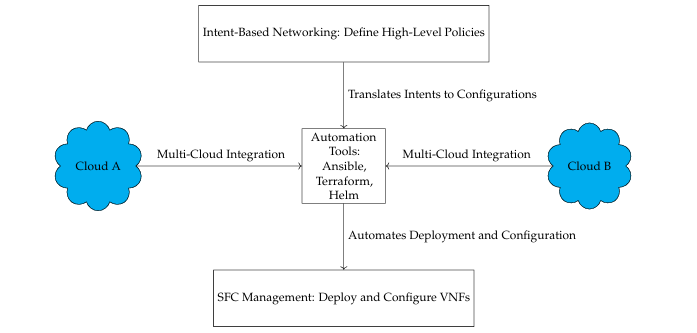Architectural Strategies for Implementing and Automating Service Function Chaining (SFC) in Multi-Cloud Environments
Abstract
Service Function Chaining (SFC) represents a paradigm shift in the deployment, management, and automation of network services, enabling a dynamic approach to connecting virtual network functions (VNFs) in a prescribed sequence. Businesses adopting multi-cloud environments to leverage different cloud providers face significant challenges in implementing and automating SFC across these distributed infrastructures. These include managing the complexities of orchestrating SFC across heterogeneous cloud platforms, ensuring consistent performance, optimizing resource allocation, and maintaining security. This paper explores architectural strategies for implementing and automating SFC in multi-cloud environments, focusing on optimizing deployment, orchestration, and scalability. It examines the components and frameworks required to achieve seamless SFC automation, such as Network Function Virtualization (NFV), Software-Defined Networking (SDN), and cloud-native technologies like Kubernetes. The paper also discusses the importance of policy-driven orchestration, dynamic scaling, and integration of AI/ML techniques for performance optimization. This research also proposes the use of cross-layer coordination and programmable data planes to enhance SFC deployment in multi-cloud environments. The goal of the paper is to demonstrate how to create a robust and adaptive SFC architecture that efficiently operates in multi-cloud setups for enhancing service delivery, reducing operational costs, and improving network agility.

Downloads
Published
How to Cite
Issue
Section
License
Copyright (c) 2020 Applied Research in Artificial Intelligence and Cloud Computing

This work is licensed under a Creative Commons Attribution-NonCommercial-NoDerivatives 4.0 International License.




